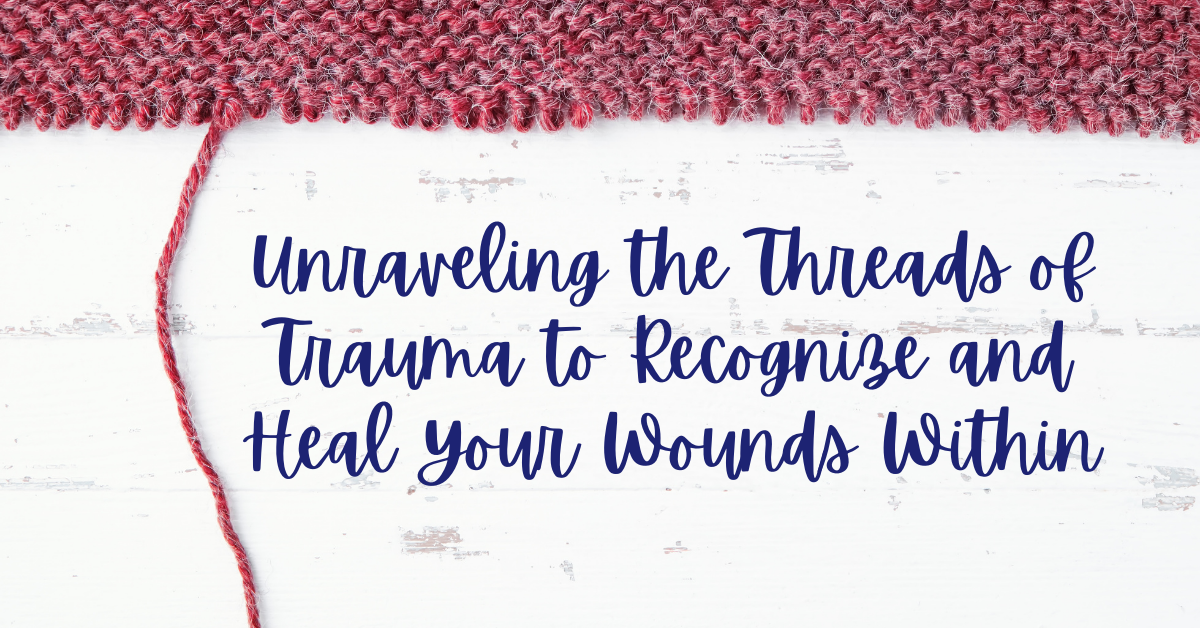Trauma, a word that often conjures images of extreme situations, war zones, or harrowing tales of human trafficking, is a concept deeply ingrained in our societal understanding. However, as renowned physician and author Gabor Mate eloquently puts it, “Trauma is not what happens to you. Trauma is what happens inside you as a result of what happened to you.” This profound statement challenges the conventional narrative surrounding trauma, urging us to look beyond the sensationalized events and recognize the intricate web of emotions and reactions that linger within us. In this exploration, we delve into the subtle and nuanced manifestations of unresolved trauma and shed light on the diverse symptoms that may signal its presence.
Understanding Trauma
Trauma, in its essence, is the aftermath of an experience that overwhelms an individual’s capacity to cope. While catastrophic events certainly contribute to trauma, it’s crucial to recognize that trauma is not confined to the extreme scenarios we often associate it with. It can manifest in the aftermath of seemingly ordinary events, accumulating in the recesses of our minds and influencing our thoughts, behaviors, beliefs, and emotions.
Symptoms of Unresolved Trauma:
Depression: Persistent feelings of sadness, hopelessness, and a lack of interest in once-enjoyable activities can be indicative of unresolved trauma.
Anxiety: Excessive worry, fear, and nervousness that extend beyond what is considered normal can be a manifestation of unresolved trauma.
Sleep Problems: Irregular sleep patterns, whether it’s excessive sleep, insomnia, or poor-quality sleep, may be linked to the emotional aftermath of traumatic experiences.
People Pleasing: An overwhelming need to seek approval and validation from others can be a coping mechanism rooted in unresolved trauma.
Catastrophizing: The tendency to magnify and overemphasize the negative aspects of situations, expecting the worst-case scenario, can be a sign of unresolved trauma.
Self-Blame: Constantly holding oneself responsible for every minor mishap or setback is a common symptom of internalized trauma.
Anger Issues: Uncontrollable outbursts of anger or an inability to express anger in a healthy manner may be connected to unresolved trauma.
Chronic Health Issues: The mind-body connection is evident in the manifestation of chronic health problems as a result of unaddressed emotional wounds.
Mental Health Diagnoses: Conditions such as ADHD may be linked to early traumatic experiences, emphasizing the need to explore the root causes of mental health challenges.
Relationship Dynamics: Unresolved trauma can influence interpersonal relationships, leading to patterns of being a doormat, controlling, manipulating, or experiencing difficulties with safe and healthy attachment.
Identity Confusion: The struggle to understand oneself, coupled with a pervasive feeling of inadequacy or unworthiness, can be a profound symptom of unresolved trauma.
Spiritual Emergence / Emergency: Spiritual emergence, a.k.a. spiritual awakening is the process of knowing both yourself and your higher power at a deeper and more intimate level. This process is often catalyzed by experiencing trauma and/or healing through trauma. For many, this process of coming closer to God/Universe/Spirit/Creator can be all kinds of warm and fuzzy. For others things can go sideways and it can quickly escalates into a spiritual emergency. Click HERE to learn more about spiritual Emergencies.
Healing Trauma
Acknowledging that everyone carries some degree of unresolved trauma is a crucial step toward fostering compassion, both for ourselves and others. Healing from trauma is a multifaceted journey that involves self-reflection, professional support, and a commitment to nurturing one’s mental and emotional well-being.
- Self-Reflection:
- Engage in introspective practices to explore the origins of your thoughts, behaviors, and emotional responses. Journaling, meditation, and mindfulness can be powerful tools in this process.
- Seeking Support:
- The guidance of a trauma trained professional, such as a Trauma Recovery Coach, can provide a safe space to understand and heal through trauma wounds. To learn more about what this looks like, book a free Zoom call so that we can chat. Click HERE to schedule.)
- Connect with Supportive Communities:
- Sharing experiences with others who have undergone similar journeys can provide validation and a sense of belonging. Support groups or online communities can be valuable resources.
- Mind-Body Practices:
- Incorporate practices that address the mind-body connection, such as yoga, tai chi, or breathwork. These modalities can help release stored tension and promote overall well-being.
- Creative Expression:
- Art, music, writing, dance or other forms of creative expression can serve as outlets for processing emotions that may be challenging to articulate verbally.
- Educate Yourself:
- Understanding the science, biology and psychology of trauma can empower individuals on their healing journey. Books, articles, and documentaries on trauma-informed care can provide valuable insights. Trainings such as my Complex Trauma Training can catapult your healing and integration to levels never before dreamed of. (For more info on the training, click HERE.)
What is Your Next Step?
Trauma is a complex, nuanced aspect of the human experience that extends beyond the headlines and into the intricacies of our daily lives. Recognizing the signs of unresolved trauma is the first step toward fostering a culture of empathy and understanding. By acknowledging that healing is a continuous process, individuals can embark on a journey of self-discovery and growth, embracing the transformative power of resilience and self-compassion. As Gabor Mate’s wisdom reminds us, the healing salve for our trauma wounds is ready; the question is, are we prepared to embark on the path of healing?






